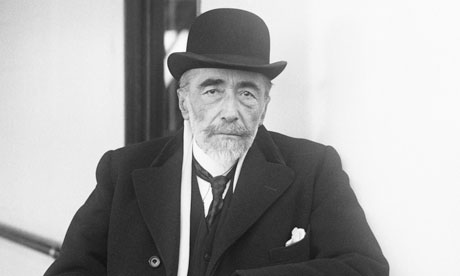
Writing to his friend Stephen Crane on 16 January 1898, Joseph Conrad related the birth of his first son Borys: "A male infant arrived yesterday and made a devil of a row… It's a ghastly nuisance." Seventy-two years later, Borys published an account of life with his eccentric father in a biography-cum-memoir which uniquely exemplifies the curious practice of filial writing. As part of a minor tradition which has seen Martin Amis record his strained relationship with his literary father, and Dmitri Nabokov undertake the translation and posthumous publication of his father's works, Borys Conrad's reminiscences are idiosyncratic in their avoidance of Joseph Conrad's literary achievements in favour of a light, often entertaining narrative. Despite its comic tone, though, a disconcerting distance between father and son is apparent.
The memoirs span Borys's childhood, ending just after his service on the Somme, and provide an affectionate portrayal of the Conrads' home life, including the family's trips in their first motor car, and JC's sporadic temper. The book also sheds light on JC's wife, Jessie, who uncomplainingly held the family together in the face of ill-health. But there are also moments of disconnection. Borys peeks at his formidable father as he sits at his desk, and learns to read JC's body language before he approaches him; Conrad's old-fashioned manners forbid displays of emotion; and a brief estrangement of son from father goes unexplained.
In a preface to one of his novels, Conrad famously declared that the purpose of his work was "before all, to make you see". The same yearning for clarity of vision preoccupies Borys's own reflections. Yet, while Borys aims "to give a picture of the man as he revealed himself to me", he seems to lose confidence in the accuracy and worth of his own recollections, and peppers the memoir with remembrances from JC's friends. In a book that struggles to maintain a sense of Joseph Conrad as a family man, the intimacy of Borys's personal memories is eclipsed by a side to Conrad that his son never knew.

